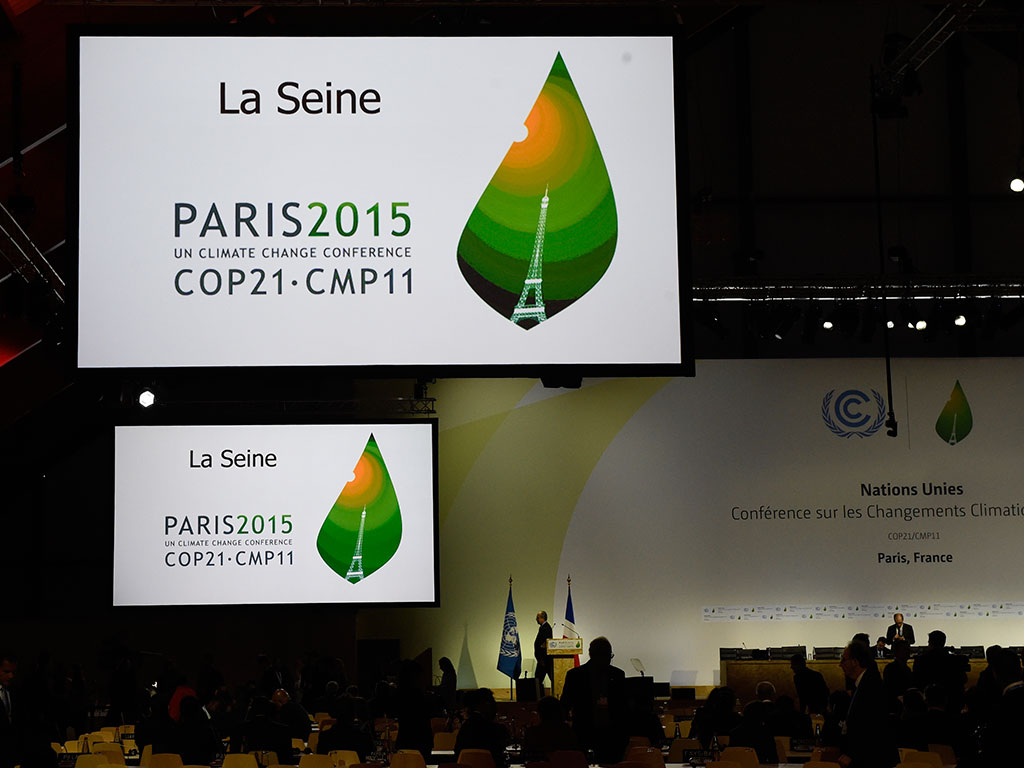COP21, day two: Whispers of decarbonisation on day two
A new report on planned construction works in the coal sector has led some to consider the toxic issue of decarbonisation

Results from a new report, titled Climate Action Tracker, was presented at COP21 on December 1
A new Climate Action Tracker report presented at the Paris summit December 1 showed that planned construction works for the coal sector are inconsistent with a 2˚C scenario. Without a radical rethink, the plans could derail the transition to a low carbon economy. For some, keeping temperatures below 2˚C demands no less than a radical decarbonisation of the energy mix, yet the impact of the planned construction works could tip emissions into dangerous territory .
Even without any new builds, coal-fired emissions by the year 2030 could be 150 percent greater than the specified limit, and the same percentage could creep as high as 400 percent if the planned works are allowed to go ahead. Globally, 2,440 coal-fired stations worth 1,428GW are waiting in the pipeline, ready to boost coal capacity by over 40 percent and reach 16 to 18 percent of the total emissions allowed under a 2˚C compatible scenario.
There is real and growing concern that governments are effectively failing or refusing to acknowledge the risks posed by emissions-heavy resources like coal
“There is a solution to this issue of too many coal plants on the books: cancel them,” said Pieter Van Breevoort of Ecofys, writing in the report. “Renewable energy and stricter pollution standards are making coal plants obsolete around the world, and the earlier a coal plant is taken out of the planning process, the less it will cost.” For those forced to contend with the issue of rising demand, the resource is not so easily cast aside.
There is real and growing concern that governments are effectively failing or refusing to acknowledge the risks posed by emissions-heavy resources like coal. The black stuff is favoured in emerging economies to meet rising demand, whereas in the EU member nations are using it to replace existing capacity . Going by the report, in seven of the nine countries, plans to ramp up production are at odds with their stated INDCs, and in India and China there are plans to build as many as 1617 new plants by 2030 .
Markus Hagemann of the NewClimate Institute, one of four contributors to the report, made reference to the falling cost of renewables and went on to suggest that coal construction might not prove financially viable in the near future. “It is unlikely that all of these planned coal plants are going to be built, especially when low carbon alternatives are reaching price parity,” he said. “If renewables take off as fast as is currently expected, many of these planned coal plants could be stranded investments or would have to operate under difficult financial circumstances.”
Crucially, the report picks up – if not explicitly – on the issue of decarbonisation and why some nations such as India and China are averse to the use of the term. Conventionals, particularly in poorer nations, are set to make up a considerable share of the energy mix for some time, and plans to cast aside fossil fuels are not so easily carried out.
India, for example, launched the International Solar Alliance and underlined its commitment to renewables on the opening day of the Paris meet. However, Modi has refused to cast aside coal and will surely reject the use of the word “decarbonisation” in any international agreement on climate change. Where the case for phasing out the use of carbon intensive fuels is clear, poorer nations will be unwilling to do so for as long as they’re not given reassurances about how the transition to renewables – in place of cheap fossil fuels – will be financed.
While representatives from over 190 countries gather in Paris to reach a shared agreement on climate change, The New Economy will be at the Sustainable Innovation Forum to expand on the role and responsibilities of business. Check back for video updates from the event as they happen.













